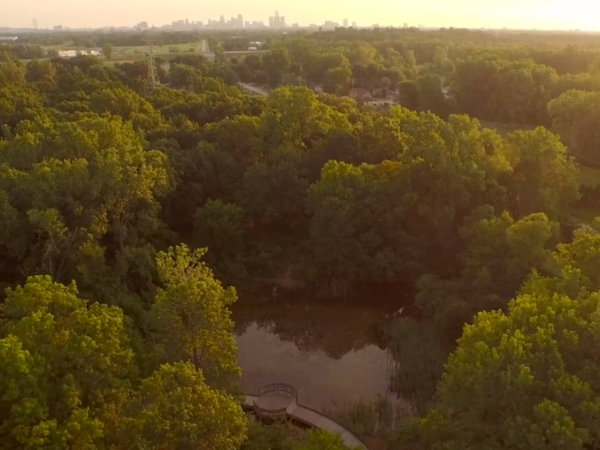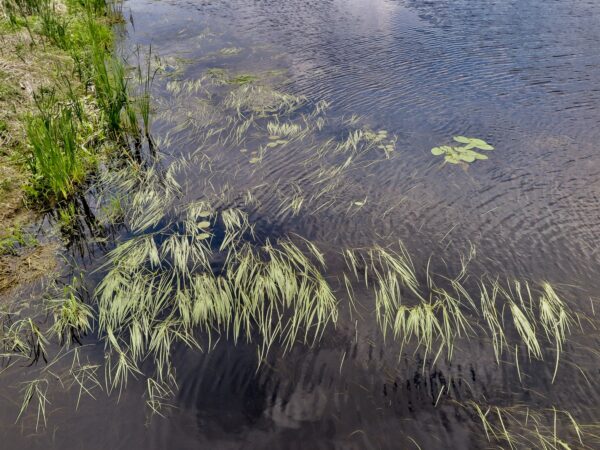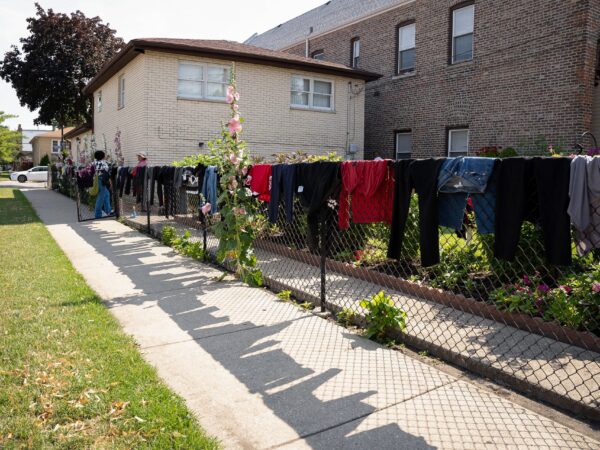
By Elena Bruess, Circle of Blue
The Great Lakes News Collaborative includes Bridge Michigan; Circle of Blue; Great Lakes Now at Detroit Public Television; and Michigan Radio, Michigan’s NPR News Leader; who work together to bring audiences news and information about the impact of climate change, pollution, and aging infrastructure on the Great Lakes and drinking water. This independent journalism is supported by the Charles Stewart Mott Foundation. Find all the work HERE.
Many First Nations in Canada continue to live without clean water six years after the government began actively addressing the issue, according to a report published by the Auditor General of Canada late last month.
There are 600 First Nations communities — around 330,000 people — in Canada, and many have endured years without safe tap water. In 2015, Canadian Prime Minister Justin Trudeau committed to eliminating all long-term drinking water advisories in First Nations communities by March 2021 by allocating more than $2 billion to improve water infrastructure. Yet, the department in charge of this commitment, Indigenous Services Canada, did not meet the target, leaving many communities with unsafe drinking water. Of the 160 long-term drinking water advisories in 2015, 60 are still in effect in 41 First Nations. Nearly half of these — 28 advisories — have lasted more than a decade.
“I am very concerned and honestly disheartened that this long-standing issue is still not resolved,” Karen Hogan, the federal general auditor, said at a press conference. “Access to safe drinking water is a basic human necessity. I don’t believe anyone would say that this is in any way an acceptable situation in Canada in 2021.”
While Indigenous First Nations own the water infrastructure within their communities and are largely in charge of operations, Indigenous Services Canada provides funding for upgrading and maintaining the water systems. Most communities have small, remote water systems, many of which have trouble managing high operating costs and placing qualified operators at the helm.
The funding formula for First Nations and water infrastructure has not been updated for 30 years, said Hogan. Operators of First Nations water systems are paid about 30 percent less than operators elsewhere, so retention is difficult. Currently, Indigenous Services Canada provides 80 percent of the funding, leaving 20 percent for First Nations to handle, which communities can’t always manage.
To close this gap, the Canadian government will fund 100 percent of the operations and maintenance costs for First Nations drinking water infrastructure, according to Indigenous Services Minister Marc Miller. The government will “accelerate” the work being done currently, he said.
Furthermore, according to the government’s economic update in November 2020, another $1.5 billion will be allocated to First Nations drinking water for the 2020-2021 fiscal year. The announcement included $114 million annually starting in 2026 for the operation of water and wastewater systems.
Without adequate funding or the establishment of a water infrastructure regime, First Nations communities will continue to live without reliable access to safe drinking water, the report concluded. The government must consult and partner with the Assembly of First Nations to solve the current issues, pass the legal framework needed, and eventually install new regulations.
“A temporary measure pushes the issues a little further down the road,” Hogan said. “It’s time to find long-term sustainable solutions.”
Catch more news on Great Lakes Now:
Enbridge Line 3 divides Indigenous lands, people
Federal Relief: Great Lakes fisheries finally get a cut of COVID-19 relief funds
Featured image: Cover of Auditor General of Canada report “Access to Safe Drinking Water
in First Nations Communities—Indigenous Services Canada”




